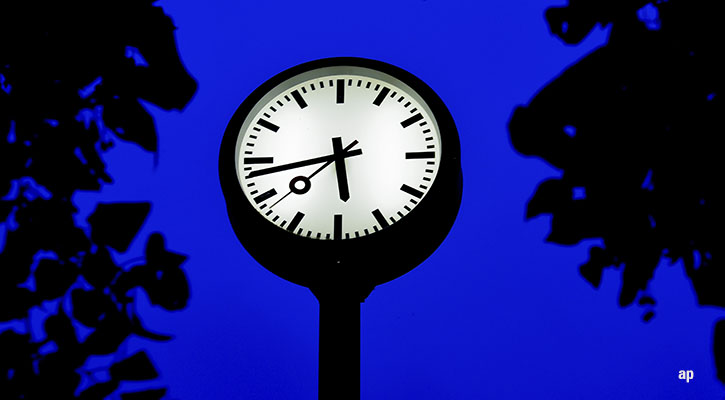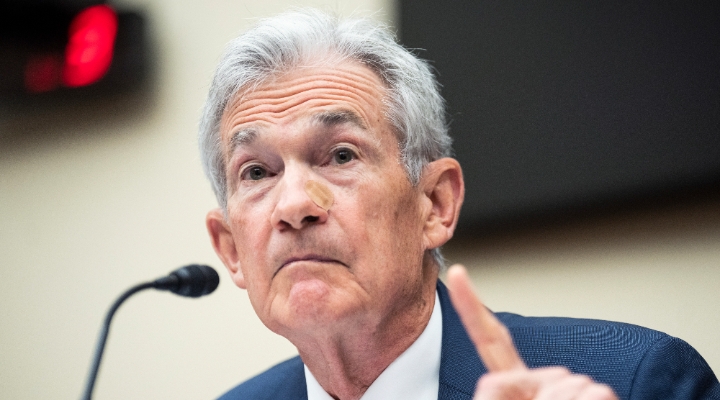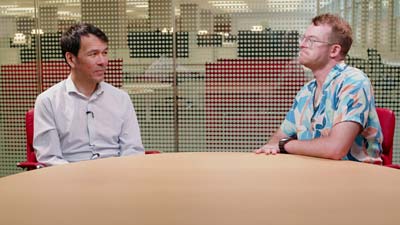
I am confused about the issue of work-life balance. Not at junior or mid-rung positions; businesses should practice what they preach when they tell people on the middle rung of the ladder that wellbeing is important.
I do accept that the same can be said for leaders, who are only human too. We saw a bit of that on Wednesday when Nicola Sturgeon resigned citing some of the personal costs of the job – just weeks after New Zealand’s prime minister Jacinda Ardern did the same.
Politicians aren’t the only one doing U-turns, however. I have one of my own. Last week I wrote a column jotting down some of the lessons I’ve learned in 12 years of adulthood.
Having shared the piece with friends, one of the most divisive tidbits of "wisdom" concerned nighttime. Never work through the night on an essay, I advised – set your alarm for 4am instead and get some sleep first. And don’t even both trying to solve your own problems at one in the morning (though you may help others solve theirs just by listening).
Perhaps you can tell I value my sleep (and I am a morning person). We’re not all like that, though. And that’s fine. Don’t write me off as a sleep snob just yet, though. I am now reassessing my attitude to night work and over-exertion.
He’s uttered much nonsense in his time in public life, and I (partly) attribute to his input one of the most cataclysmically damaging economic events in British history (Brexit), but Dominic Cummings has said at least one thing that interested me.
Part of his working model for high politics was that you need teams of people who are willing to graft late into the night to the detriment of everything else to get the job done.
This – I believe – is one of the essential tenets of public service, and it’s why being in office ages you dramatically. Just take a look at any picture of Abraham Lincoln in 1860 and compare it five years later. It’s hardly healthy, but sometimes it’s necessary. I can feel myself turn inside out as I write that. The hypocrisy!
It's particularly important in a crisis. Think Twitter employees battling it through the night and living in their office on Elon Musk’s orders to overhaul their own company, or the hidden meetings that go on in the Pentagon while the rest of Arlington sleeps. Think of Covid-19. But crises aside, in some organisations this is the very framework on which services run.
We're Running Out of Steam
Over three million people are classified by the Office for National Statistics as night workers in the UK (people who work more than three hours between 11pm and 6pm).
As a side note, it’s right we take that seriously and pay people accordingly. Being a night worker takes years off your life. Ask any police officer, paramedic, A&E registrar or nurse who works at night and they won’t hesitate to tell you that the nightshift ruins your circadian rhythms (and your optimism).
So where am I going with this? Everyone knows the UK has a lot of problems. The neologism "permacrisis" started doing the rounds last year and, though it was depressing, it was apt. But I think we fail to understand how those problems look to our own citizens.
Take productivity. We measure productivity with all the robotic inhumanity of a spreadsheet, but it’s just not how the people on the ground – the actual employees – experience it.
Someone might return home at 6pm and cheerfully say they’ve had a "productive" day, but no sane or rational person would actually keep an spreadsheet of their own actually measuring it. So why is it that the nearly 33 million people who are employed in the UK (presumably) feel like they’re working their butts off, but to no avail in the statistics?
It’s because life feels exhausting, and has done for some time. It’s because work doesn’t pay. And it’s because the financial and personal cost of owning and running a home is becoming egregious as to make it anti-aspirational for many. Many are left asking "what’s the point?" Even people in professions with a supposedly higher moral calling like teaching or nursing have run out of steam. Purpose only gets you so far.
Tired Phrases, People
I’ll conclude. I suspect you will hear a lot in the upcoming Budget about "hard-working" voters. But that is a phrase almost as tired as the voters themselves. Britain is currently in a huge internal and subconscious conversation with itself about what it means to work hard, and what it means to be rewarded. Many key workers are still knackered from Covid-19's demands, and many who had the luxury of home working rightly feel confused about whether it's OK to say you've had a "busy" day when they've literally not even stood up from the chair in their studies. The whole thing is so emotionally confusing.
At the very top of politics, the irony is that it will take many smart heads in rooms working through the night to keep the show on the road and the policy in the right place. But it’s not a model that works smoothly for the majority – that’s why the majority don’t do it.
The solution? One step is removing the taboo about work, and probably ditching some of our national penchant for self-deprecation. Those who work hard should be able to say so. For it’s that which truly lays bare the issue of reward. Perhaps that’s one move that will allow us to put one of the UK’s worst malaises problems to bed.
Ollie Smith is UK Editor at Morningstar, and wrote this well after his bedtime




























